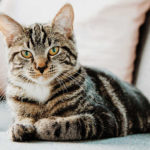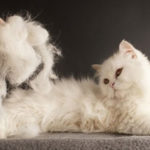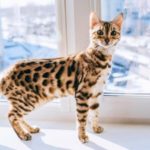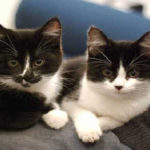The Russian Blue cat, a favorite among cat lovers in Vietnam, is known for its sleek and beautiful features. If you’re considering adopting one, this guide will provide you with all the essential information you need.
1 Origin of Russian Blue Cats
As the name suggests, this breed originates from Russia. However, there are conflicting theories about its exact origins. Some believe they were discovered in the northern regions of the country, while others attribute their formation to genetic mutations.
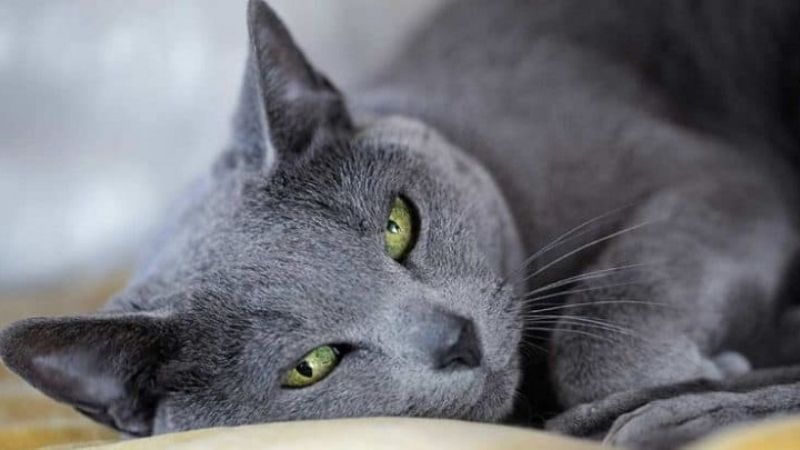 The origin of Russian Blue cats is still a subject of debate
The origin of Russian Blue cats is still a subject of debate
2 Distinctive Features of Russian Blue Cats
Physical Appearance
Russian Blue cats have active lifestyles, and their bodies reflect that. They are slender and muscular, with a graceful gait, a slightly pointed head, and long legs.
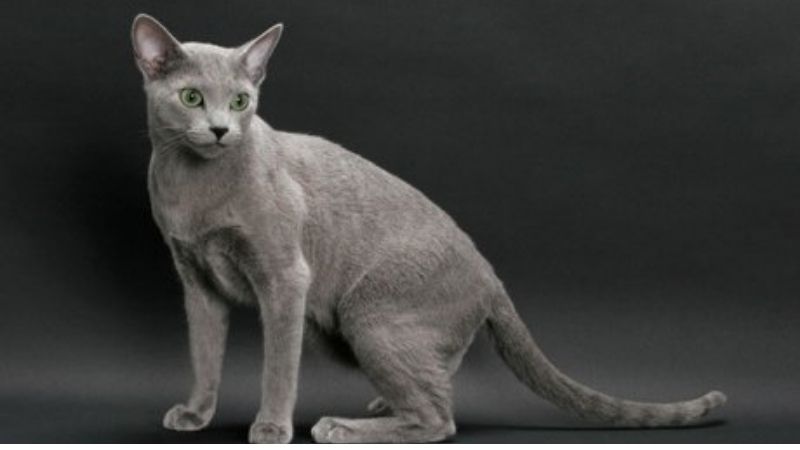 Graceful and agile, with a pointed head and long legs
Graceful and agile, with a pointed head and long legs
Personality
Russian Blue cats are known for their gentle and shy nature. They may be cautious around strangers, but they warm up quickly and become friendly and playful with familiar people.
 Friendly and playful with familiar people
Friendly and playful with familiar people
3 Caring for Your Russian Blue Cat
Russian Blue cats have a long lifespan and can live between 10 to 15 years with proper care.
Grooming
Russian Blue cats have thick and lustrous coats, and they tend to shed a lot during their shedding season. It’s important to brush their fur daily with a soft brush to prevent matting and remove loose hair. For adult cats, once-a-day brushing is sufficient.
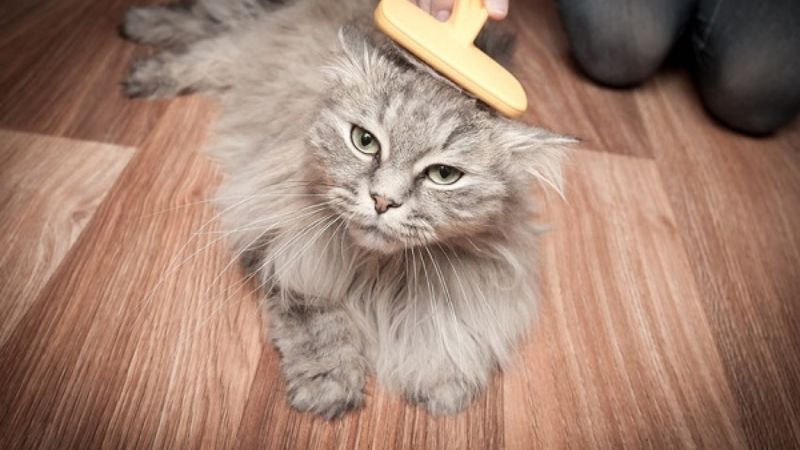 Daily brushing is essential for Russian Blue cats
Daily brushing is essential for Russian Blue cats
Nutrition
As carnivores, Russian Blue cats require a meat-rich diet. You can feed them pork, beef, or chicken. They are generally easy eaters and tend to be greedy, so it’s important to monitor their food intake to prevent obesity. In addition to a healthy diet, ensure they get enough exercise through play and activities to keep them agile and stimulate their appetite.
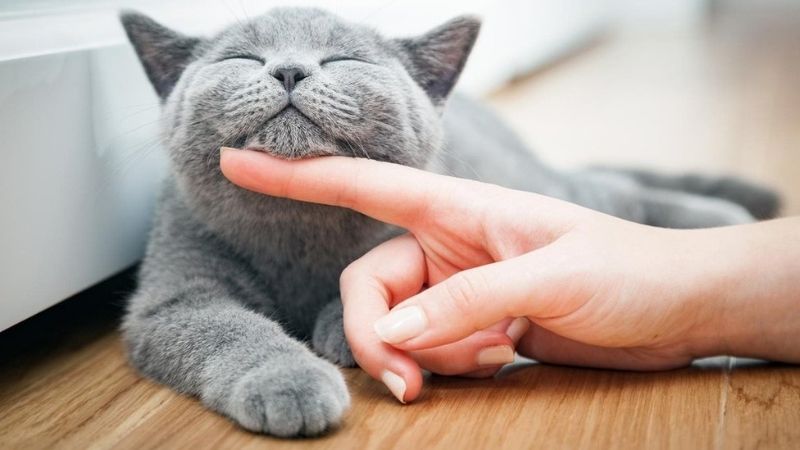 Russian Blue cats are easy eaters and tend to be greedy
Russian Blue cats are easy eaters and tend to be greedy
Health Care
Russian Blue cats are prone to respiratory issues due to their short and small noses. Keep a close eye on them and seek veterinary care at the first sign of any health concerns.
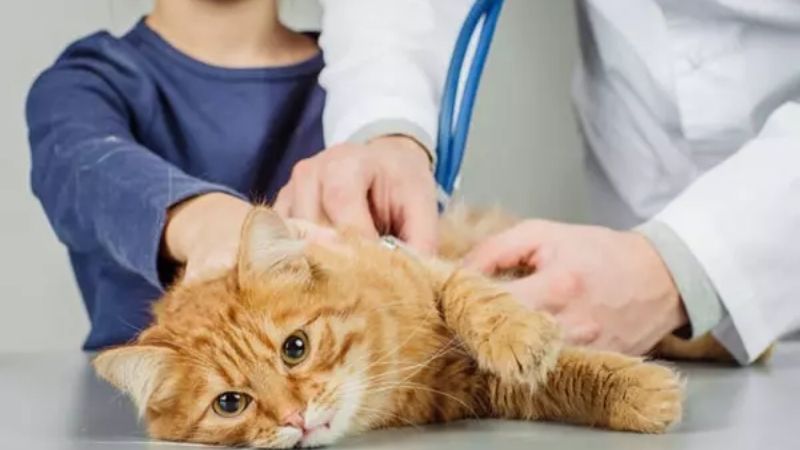 Monitor your cat’s health and seek timely veterinary care
Monitor your cat’s health and seek timely veterinary care
4 Where to Buy a Russian Blue Cat?
Russian Blue cats are rare in Vietnam and not as commonly available as other breeds. Their price can range from 10,000,000 to 15,000,000 VND, depending on the cat’s characteristics. For Russian Blue cats imported from the UK, the price can be as high as $2,000 to $3,000, excluding import fees.
5 Top 9 Russian Blue Cat Breeds
Russian Blue (with Blue Eyes)
This is the most popular and sought-after Russian Blue cat breed. They are known for their mesmerizing blue eyes and are highly prized by cat enthusiasts.
Price Range: 15,000,000 to 60,000,000 VND
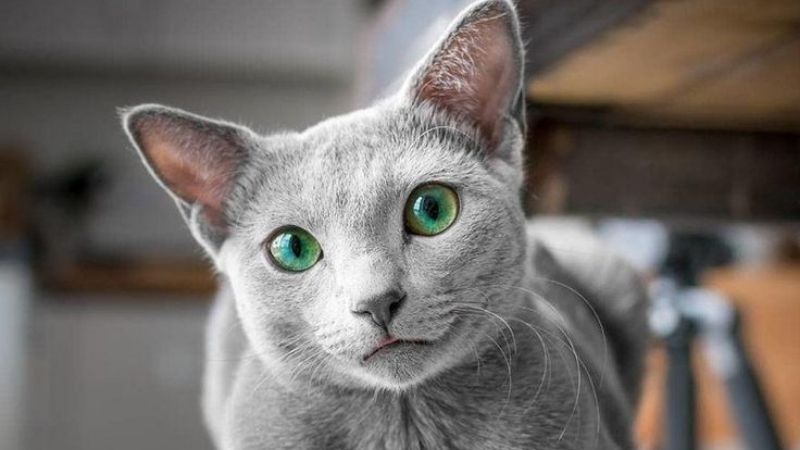 Russian Blue cat with blue eyes
Russian Blue cat with blue eyes
White Russian
This breed is not considered purebred as it is a cross between a Siberian female and a Russian Blue male. They have snow-white fur and a fluffy tail.
Price Range: $400 to $3,000
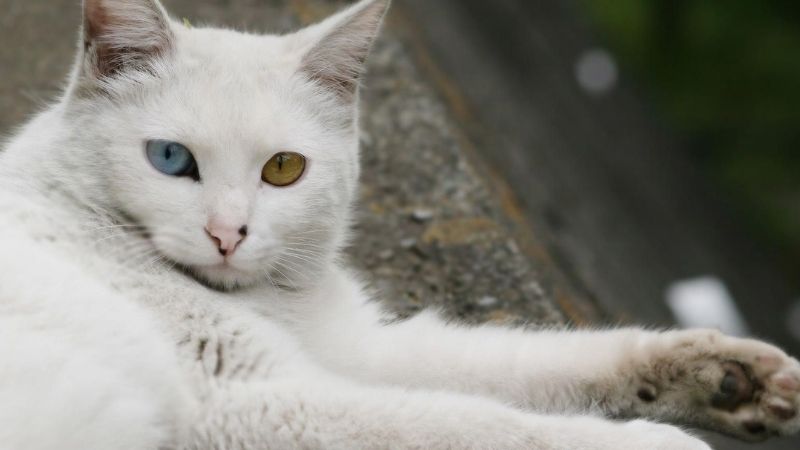 White Russian cat
White Russian cat
Donskoy
Donskoy cats are hairless, with wrinkled skin, but they are not related to the Egyptian Sphynx breed. They are known for their friendly and intelligent nature.
Price Range: $2,000 to $4,000
 Donskoy cat
Donskoy cat
Kurilian Bobtail
This Russian breed stands between 22 and 30 cm tall and weighs 5-7 kg. They have soft, short to medium-length fur in red or gray with stripes.
Price Range: $2,000 to $5,000
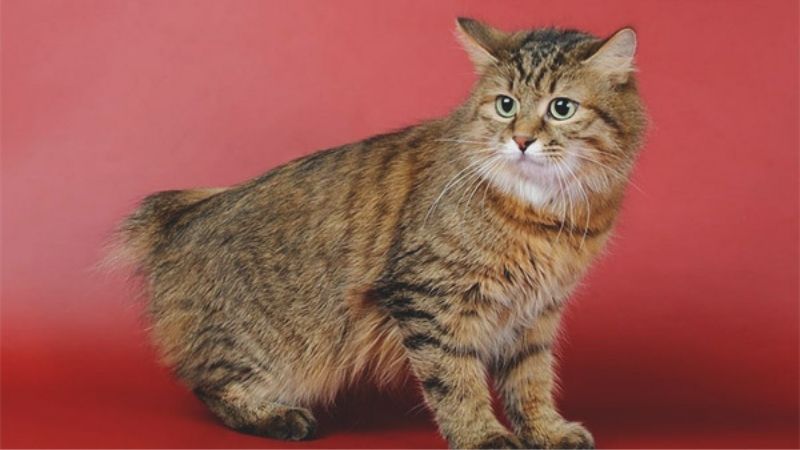 Kurilian Bobtail cat
Kurilian Bobtail cat
Mekong Bobtail
The Mekong Bobtail has Asian influences in its appearance, with an average height of 18-23 cm and a weight of 3.6-4.5 kg. They have slender bodies, short and soft fur, and come in a variety of colors.
Price Range: 23,000,000 to 27,000,000 VND
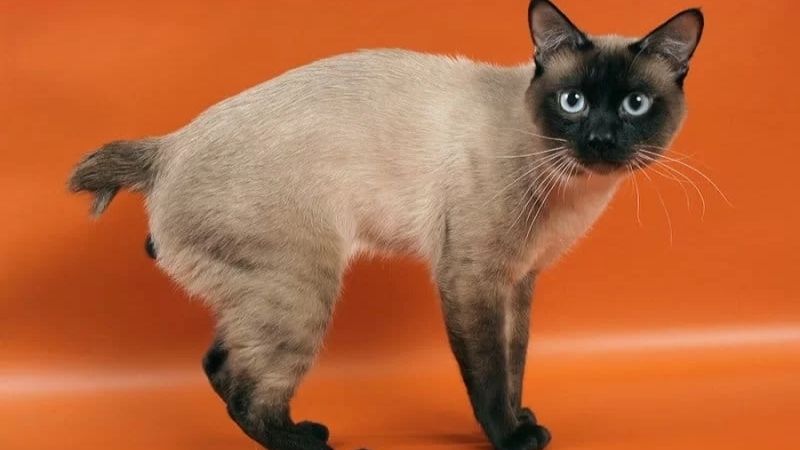 Mekong Bobtail cat
Mekong Bobtail cat
Siberian
Siberian cats have long and thick fur to withstand the cold Russian climate. They come in a variety of colors and are comfortable lounging outdoors.
Price Range: 27,000,000 to 37,000,000 VND
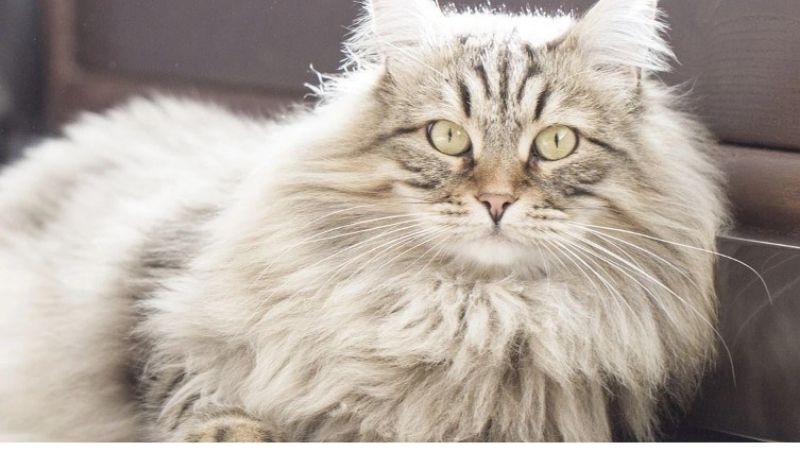 Siberian cat
Siberian cat
Karelian Bobtail
The distinctive feature of the Karelian Bobtail is its short, curved, and bent tail. The tail’s fur is usually much longer than the fur on the rest of its body.
Price Range: 16,000,000 to 68,000,000 VND
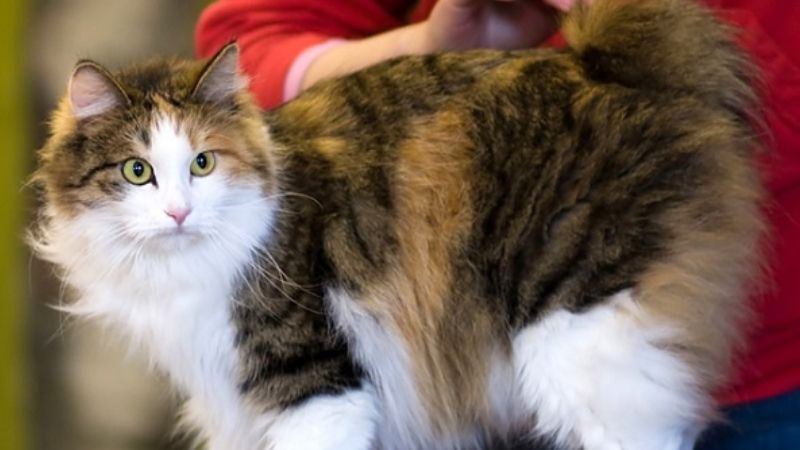 Karelian Bobtail cat
Karelian Bobtail cat
Peterbald
Peterbald cats can be hairless, have thin hair, or have thick hair. They have long bodies and tails, and their price ranges from $1,700 to $3,000 (39 to 69 million VND).
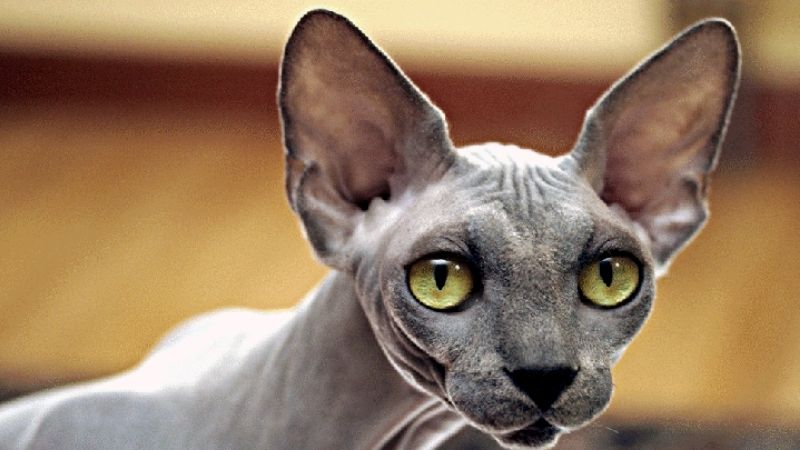 Peterbald cat
Peterbald cat
Toy Bob
Toy Bobs are small, with a height of 10-15 cm and a weight of 2-3 kg. They have slightly longer fur, large eyes, and come in various colors. A Toy Bob cat costs around $2,000 (45.5 million VND).
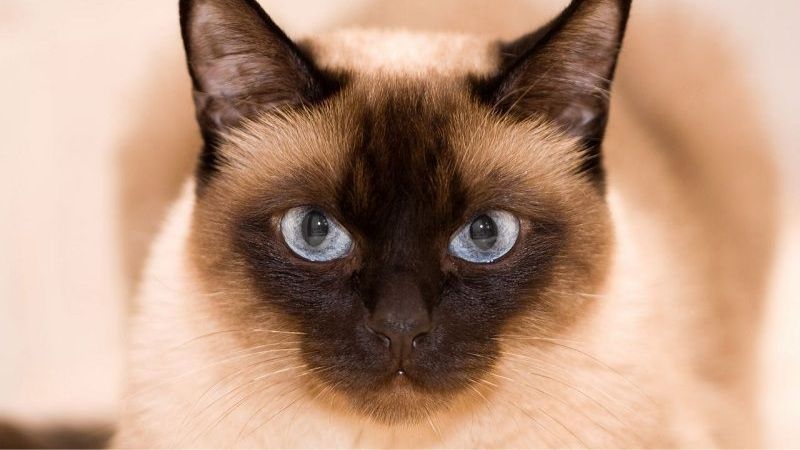 Toy Bob cat
Toy Bob cat
Now that you know the basics about Russian Blue cats, you can make an informed decision before adopting one. Consider their unique characteristics and care requirements to ensure a happy and healthy life for your new furry friend.
Is Cat Hair Loss Normal? Understanding and Treating Your Cat’s Hair Loss
“Pet owners often worry when they see their beloved feline friends shedding hair. It’s a common concern, and many wonder about the cause. So, today, we will shed some light on this very topic and explain why cats shed their fur! Stay tuned as we unravel the mystery behind your cat’s shedding habits.”
The Bengal Cat: Unveiling the Unique Traits, Care Guide, and Pricing of the Bengal Cat
The Bengal cat is undoubtedly one of the most stunning and expensive cat breeds in the world today. With their exotic looks and captivating presence, these felines have captivated cat enthusiasts and breeders alike. But what exactly is a Bengal cat? Join us as we explore the origins, unique characteristics, and specific care requirements of this extraordinary breed.
The Scottish Fold: A Comprehensive Guide to its Origins, Characteristics, Care and Pricing
The Scottish Fold, or simply the ‘Fold’, is an adorable breed of cat with a unique biological trait; its ears fold forward and downward, giving it a distinctive and charming appearance. This breed originated in Scotland and has since captured the hearts of cat lovers worldwide. With their sweet faces and affectionate nature, it’s no wonder that people are eager to learn more about their history, care, and availability. This introduction aims to provide a glimpse into the world of the Scottish Fold, offering insight into their origins, the specific care they require, and the process of welcoming one of these captivating cats into your home.


























